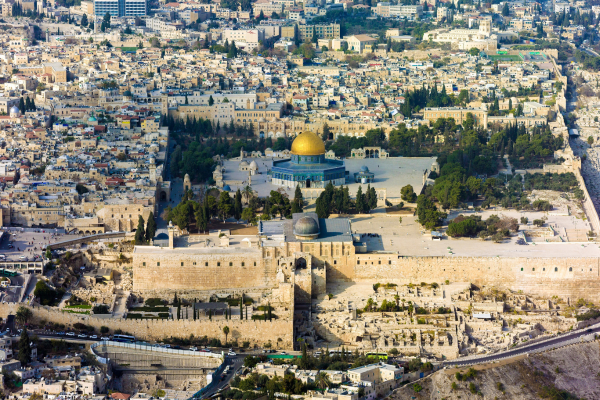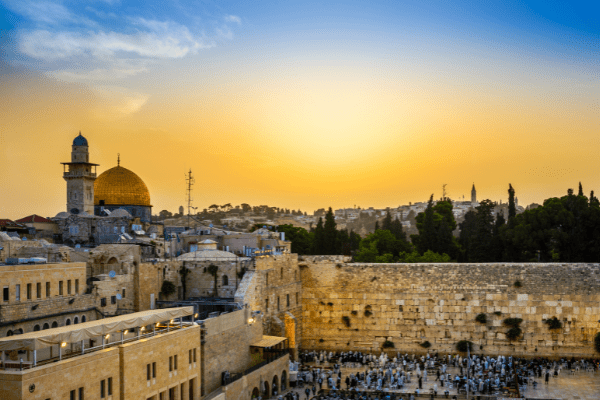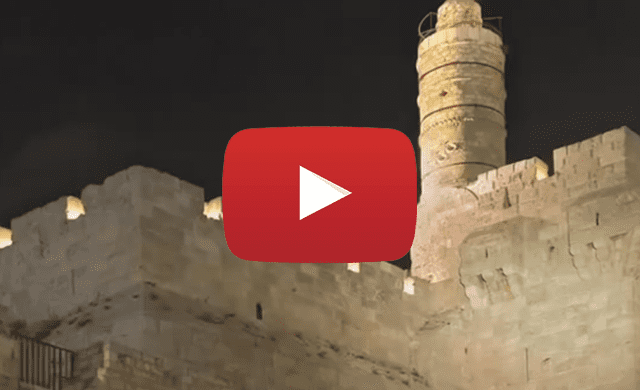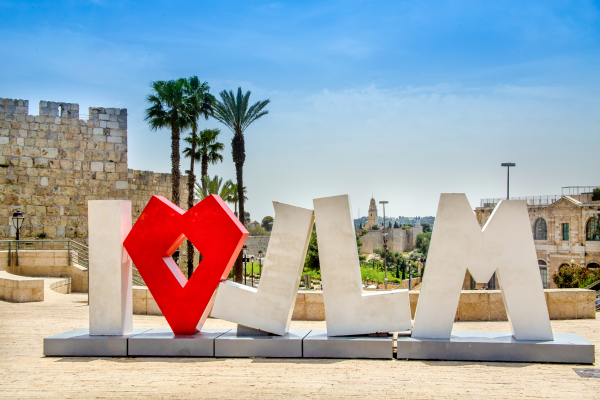
TORAH
NEVI'IM
KETUVIM
Chapter 137
Translation and Transliteration of
Listen to this chapter in Hebrew:
- Commentary
- Buy E-book
- Buy the Israel Bible
1By the rivers of Babylon, there we sat, sat and wept, as we thought of Tzion.
אעַל נַהֲרוֹת בָּבֶל שָׁם יָשַׁבְנוּ גַּם־בָּכִינוּ בְּזָכְרֵנוּ אֶת־צִיּוֹן׃
2There on the poplars we hung up our lyres,
בעַל־עֲרָבִים בְּתוֹכָהּ תָּלִינוּ כִּנֹּרוֹתֵינוּ׃
3for our captors asked us there for songs, our tormentors, for amusement, “Sing us one of the songs of Tzion.”
גכִּי שָׁם שְׁאֵלוּנוּ שׁוֹבֵינוּ דִּבְרֵי־שִׁיר וְתוֹלָלֵינוּ שִׂמְחָה שִׁירוּ לָנוּ מִשִּׁיר צִיּוֹן׃
4How can we sing a song of Hashem on alien soil?
דאֵיךְ נָשִׁיר אֶת־שִׁיר־יְהֹוָה עַל אַדְמַת נֵכָר׃
5If I forget you, O Yerushalayim, let my right hand wither;
im esh-ka-KHAYKH y'-ru-sha-LA-im tish-KAKH y'-mee-NEE
האִם־אֶשְׁכָּחֵךְ יְרוּשָׁלָ ִם תִּשְׁכַּח יְמִינִי׃
![]() 137:5 If I forget you, O Yerushalayim
137:5 If I forget you, O Yerushalayim
Psalm 137 was written by the rivers of Babylon, where the exiled Jews wailed and lamented the destruction of the Beit Hamikdash. They wondered how they would continue to endure on foreign soil. How could they continue to sing the songs of Hashem, which were supposed to be sung in the Temple, in the exile? Their answer was an oath to never forget Yerushalayim. This psalm makes an oblique reference to Sefer Devarim 8:19, “If you do forget Hashem your God and follow other gods to serve them or bow down to them, I warn you this day that you shall certainly perish.” Israel’s exile came when they forgot God in their land. In Babylon, they promised themselves never to repeat that mistake, and never to forget Yerushalayim. Today, this psalm is recited at Jewish weddings just before the groom breaks a glass, ensuring that Jerusalem is always at the forefront of our minds and reminding us that no joyous occasion is complete until Yerushalayim is restored to its former glory.
6let my tongue stick to my palate if I cease to think of you, if I do not keep Yerushalayim in memory even at my happiest hour.
tid-BAK l'-sho-NEE l'-khi-KEE im LO ez-k'-RAY-khee im LO a-a-LEH et y'-ru-sha-LA-im AL ROSH sim-kha-TEE
ותִּדְבַּק־לְשׁוֹנִי לְחִכִּי אִם־לֹא אֶזְכְּרֵכִי אִם־לֹא אַעֲלֶה אֶת־יְרוּשָׁלַ ִם עַל רֹאשׁ שִׂמְחָתִי׃
![]() 137:6 if I do not keep Yerushalayim in memory even at my happiest hour.
137:6 if I do not keep Yerushalayim in memory even at my happiest hour.
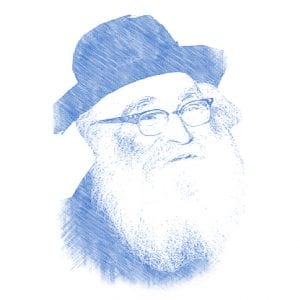
Rabbi Aryeh Levin (1885-1969)
Rabbi Aryeh Levin (1885 – 1969) was considered one of the most righteous and pious Jews of the 20th century. He was known as the “Tzadik (saint) of Yerushalayim” for his devotion to the needy and downtrodden of the Holy City. His passion for seeing only the goodness of people and his zeal for Jerusalem were part of his very fiber. As is the Jewish custom, Rabbi Levin would place ashes on the forehead of a bridegroom under the wedding canopy in order to keep the destruction of Yerushalayim at the forefront of everyone’s mind “even at my happiest hour”. Fittingly, he had the privilege of personally experiencing the fulfillment of Rabbinic adage: “All who mourn Jerusalem, merit to witness its rebuilding (Taanit 30b).” After the liberation of Jerusalem in 1967, the “Tzadik of Yerushalayim” would visit the Western Wall weekly, until his death two years later.
7Remember, Hashem, against the Edomites the day of Yerushalayim's fall; how they cried, “Strip her, strip her to her very foundations!”
זזְכֹר יְהֹוָה לִבְנֵי אֱדוֹם אֵת יוֹם יְרוּשָׁלָ ִם הָאֹמְרִים עָרוּ עָרוּ עַד הַיְסוֹד בָּהּ׃
8Fair Babylon, you predator, a blessing on him who repays you in kind what you have inflicted on us;
חבַּת־בָּבֶל הַשְּׁדוּדָה אַשְׁרֵי שֶׁיְשַׁלֶּם־לָךְ אֶת־גְּמוּלֵךְ שֶׁגָּמַלְתְּ לָנוּ׃
9a blessing on him who seizes your babies and dashes them against the rocks!
טאַשְׁרֵי שֶׁיֹּאחֵז וְנִפֵּץ אֶת־עֹלָלַיִךְ אֶל־הַסָּלַע׃






